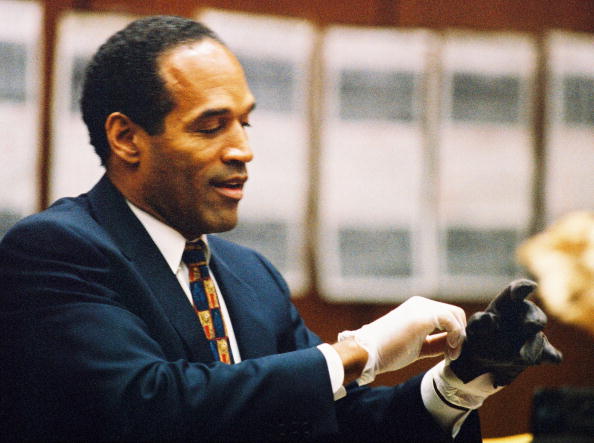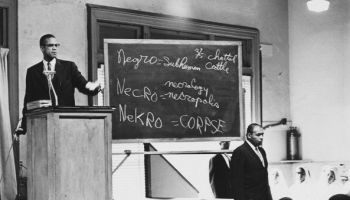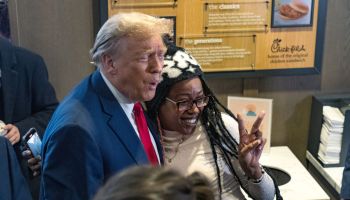Writing about Black people is hard. There are more than 40 million of us in the United States alone, each running around with different ideals, interests, occupations, and income levels. With all of that going on, things are bound to get complicated. So how can the American news media—not renowned for its ability to cover nuance and complexity—engage with all of that?
Well, the short answer is that they can’t. Or perhaps won’t. Instead, the vast majority of coverage of Black people sticks to easily digestible narrative themes: Overcoming adversity, committing violent crime, engaging in secret elitism, complaining of real or imagined victimization by The Man, allowing the family unit to disintegrate, and so on—these are the types of Black people stories we’ve come to know and love.
And when some subset of people doesn’t fit into one of these pre-set narratives? Well, they get the Loch Ness monster treatment: Some kooky blog or other disreputable source might rant and rave about their existence and importance, but you won’t find CNN or the New York Times taking much notice. But we true believers, we know they’re out there. And so I present without further ado, 7 Groups Of People The Media Pretends Don’t Exist:
The Black Middle Class
Before anyone pipes up with a reference to The Cosby Show, try to remember that it ended more than 15 years ago. And the Obamas don’t count either—there’s nothing “middle class” about being the President of the United States. So what we’re ultimately left with is a case study in the coverage of extremes. CNN’s Black in America 2 offered a prime example of this in its choices of subjects: They showed the obligatory uplifting story of poor inner-city children being inspired to achieve their dreams, and later shifted gears to offer a peek into the world of the Black elite—mansions and debutante balls for all. Black families that fall squarely in between these two ends of the spectrum remain invisible.
Gay Black People
Did you hear? Bible-thumping, Obama-loving, and gay-hating blacks put the nail in the coffin of gay marriage in California. Yes sirree, according to coverage of Proposition 8 in several mainstream media outlets, all these black folks are very socially conservative and don’t hold with that same-sex relationship nonsense. Oh, unless they’re closeted gangsters on the down low or something, creeping behind the backs of their wives. Other than that, nope—no healthy, happy, non-dysfunctional gay or lesbian relationships among African-Americans. Move it along folks, nothing to see here.
Missing Persons Who Aren’t White And Female
Because only little white girls disappear, apparently. If you’re male, or a person of color—or to be honest, even just a brunette—and you have the misfortune of being kidnapped or otherwise going missing, good luck ever being seen or heard from again.
Non-Christian Black People
To hear the mainstream media tell it, black people are all just a-wavin’ our fans and catchin’ the Holy Ghost in the pews, like extras in a Tyler Perry movie. That’s why any politician who wants the black vote must give adequate attention to The Black Church by showing up at a Christian service or two. There are, of course, Black adherents to other faiths, not to mention (horrors!) Black atheists and agnostics. In fact, a CBS survey found that at least one-third of American Muslims are Black! But as usual, the compulsion to paint Black people as a monolith, combined with a dash of historical nostalgia—(The Civil Rights movement was centered in churches! Their strong faith in Jesus carried them through slavery!)—keeps coverage of Black people and religion safely insulated from such nuance.
Educated, Married Black Women
If the constant hysterical repetition of the scary statistics is to be believed, you’re about as likely to run into a happily married, educated Black woman with children as you are to be handed a pot of tax-free gold by a leprechaun riding on the back of a unicorn. The most recent incarnation of the “Black women with degrees are condemned to spinsterhood” article appeared on MSNBC earlier this month. It helpfully explained that “many” Black women with advanced degrees remain unmarried—no specific number, just the ominous “many.” The piece then went on to tell that 38 percent of highly educated Black women born between 1961 and 1970 are childless. The other way to say that statistic, of course, is that 62 percent of those highly educated Black women do have children. But I’m guessing a headline like “A Solid Majority Of Highly Educated Black Women Will Marry and Have Children” just wouldn’t get as many clicks, or be as fun to recycle and reprint several times a year.
Africans Who Are Not Poor, Starving, and Living in Small Villages
Did you know that nearly 40 percent of people on the African continent live in urban areas? That means cities, like New York, San Francisco, and Chicago. No? Of course you didn’t. How could you, when most American news coverage of African countries looks like a bunch of extended “Save the Children” commercials?
Black Police Officers
No surprise here—the existence of black police officers is simply inconvenient, from a narrative standpoint. How else but by ignoring the existence of minority law enforcement officials could media outlets continue to crank out new spins on the old classic “Black Folks Have Historically Fraught Relationship With The (Racist) Cops” story? Don’t believe me? Take a look at this photo, from the recent racial dust-up surrounding the arrest of Harvard professor Henry Louis Gates, Jr.:
Your eyes are not deceiving you. That is, in fact, a black man wearing a police uniform in the bottom right corner of the photo. But the mainstream media pulled a Beyonce and directed everyone’s attention to the left, to the left, so that they could continue with their regularly scheduled programming.
Maybe someday the mainstream media will catch on and start covering these groups in a meaningful way. But until then, keep an eye out for these characters lurking in the background of the usual stories, hoping to be heard. Because seemingly imaginary people are people too.
















